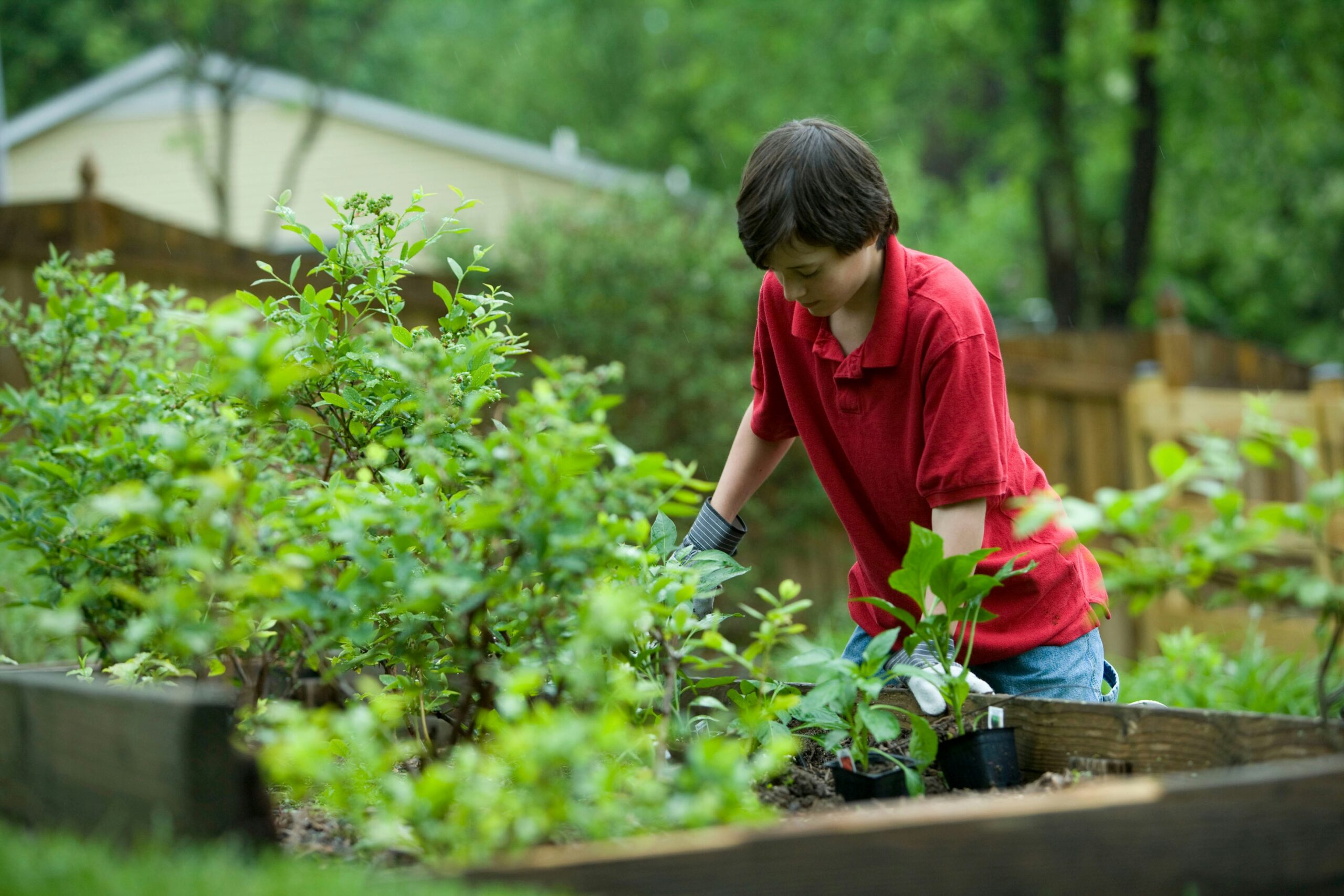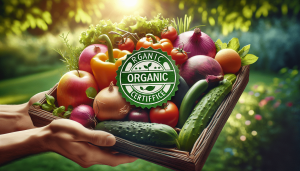Looking to incorporate more organic products into your lifestyle, but not sure where to start? We have you covered. In this article, we will share some tips and tricks on how to easily find local organic products. Whether you’re craving fresh produce, ethically sourced meats, or environmentally-friendly household items, we’ve got the inside scoop on where to find them. By the end of this article, you’ll be well on your way to supporting local farmers and living a healthier, more sustainable life. So, let’s get started!
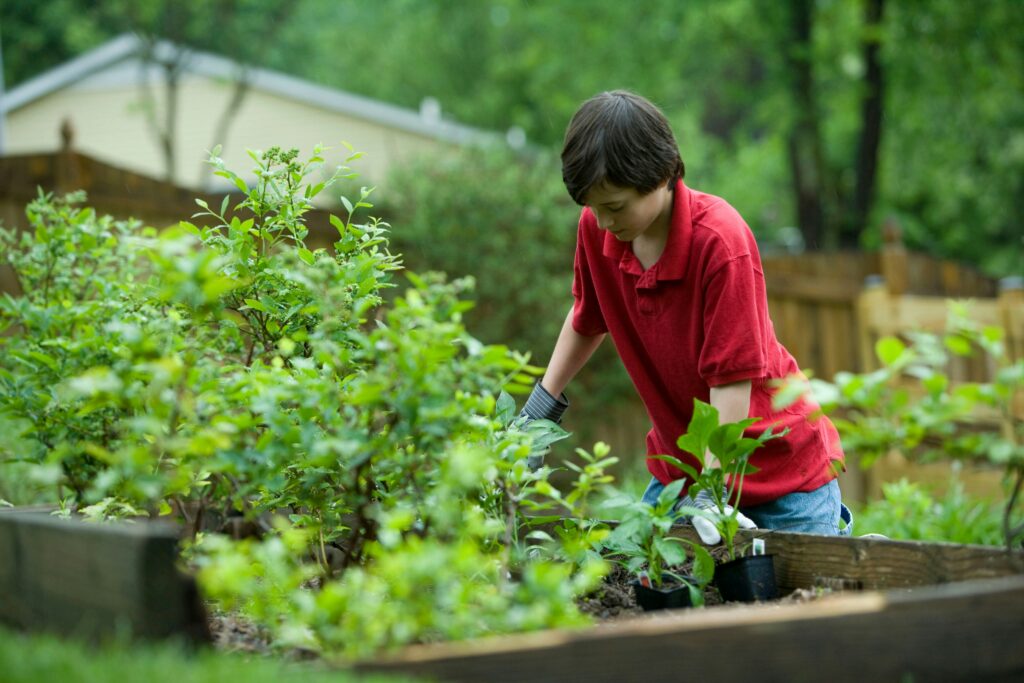
Farmers Markets
Farmers markets are a fantastic place to find local organic products. These markets are typically held in designated areas on specific days, allowing farmers and vendors to showcase and sell their fresh produce, meats, and other organic goods directly to consumers. To locate farmers markets in your area, a quick online search or a visit to your local community center or municipality’s website should provide you with the necessary information. Many cities also have dedicated websites or directories that list the dates, times, and locations of farmers markets.
Once you have identified the farmers markets near you, it’s important to check their schedules. Farmers markets often operate on specific days and times, so make sure to note when they are open for business. Some markets may be weekly, while others could be held bi-weekly or monthly. Checking the market schedule ahead of time will help you plan your visits accordingly, ensuring that you don’t miss out on the opportunity to explore a wide variety of organic products.
When you visit farmers markets, take the time to explore the different vendors. Talk to the farmers and producers directly to learn more about their farming practices and to inquire about organic products. Many vendors proudly display signs indicating that their produce is organic, making it easier for you to identify which ones to prioritize during your shopping trip. Engaging with the vendors will not only give you valuable insights into their products, but it will also help you build a connection with the local farming community, which can enhance your overall shopping experience.
Community Supported Agriculture (CSA)
Community Supported Agriculture (CSA) programs are another excellent way to access local organic products. By joining a CSA, you become a member and receive weekly or monthly boxes of organic produce directly from local farmers. CSA programs foster a direct relationship between consumers and farmers, ensuring that you receive fresh, seasonal, and locally-grown produce.
To find a local CSA program, there are various research methods you can utilize. Online directories dedicated to sustainable agriculture, local food-focused websites, and even social media platforms can provide valuable information on CSA programs in your area. These resources often provide details on the farms participating in CSA programs, allowing you to learn about their organic practices and the types of produce they offer.
Once you have identified a suitable CSA program, joining is typically a straightforward process. CSA memberships usually require an upfront payment for a specified duration, such as a season or a year. In return, you will receive regular deliveries of organic products directly to your doorstep or a designated pickup location. Not only does participating in a CSA program support local farmers, but it also enables you to enjoy a variety of fresh, organic produce while fostering a sense of community.
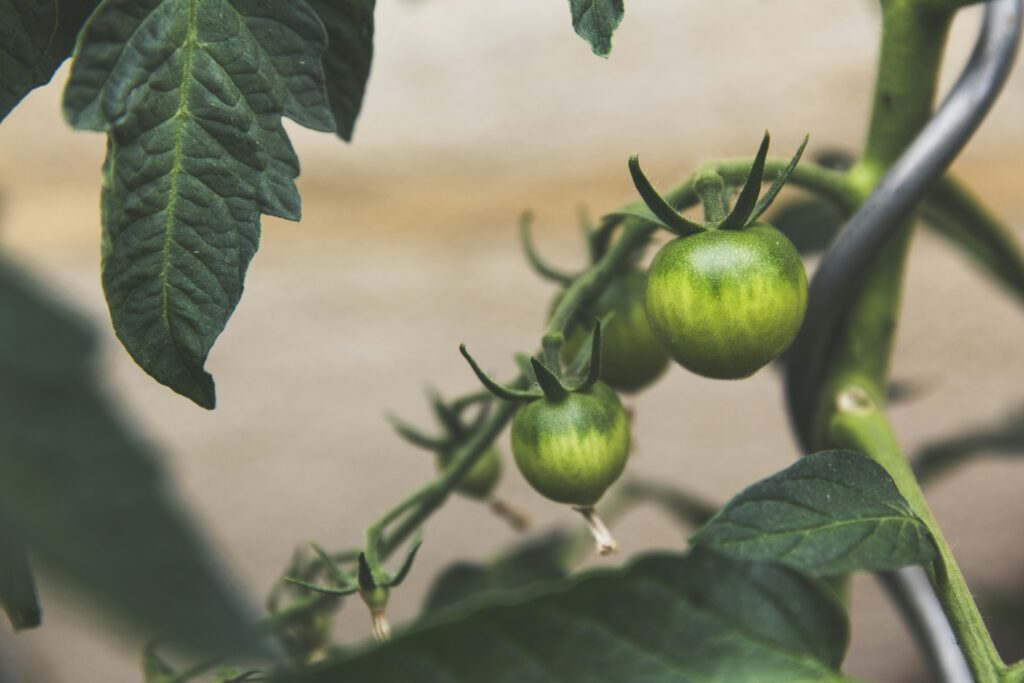
Local Organic Farms
If you prefer a more hands-on approach to sourcing local organic products, consider visiting local organic farms. Many organic farms open their doors to the public, allowing visitors to explore their operations and even purchase products directly on-site.
To find local organic farms, start by conducting an online search. Local farm directories and websites often provide information on nearby organic farms, including their locations and contact details. Visiting these websites will give you insights into the farming practices employed by these farms and provide you with an idea of the types of organic products they offer.
Before making a visit, check if the farms you’re interested in visiting offer on-site sales. While some farms focus solely on wholesale operations or supplying local markets, others have designated farm stands or stores where you can purchase organic produce and other farm-made goods. These on-site sales provide an excellent opportunity to not only support local farmers but also to witness firsthand the dedication and hard work that goes into producing organic products.
When planning a visit to local organic farms, it’s always a good idea to inquire about purchasing options in advance. Some farms may require appointments or have specific hours for on-site sales, while others may have open farm days or seasonal events where visitors can access a wider range of products. Familiarize yourself with the farm’s policies and ensure you have all the necessary information before embarking on your farm visit.
Online Directories and Platforms
With the convenience of the internet, finding local organic products has become easier than ever. Online directories specifically cater to individuals looking for organic products in their locality. These directories often provide comprehensive information on local farms, farmers markets, and retailers that offer organic options.
When browsing online directories, consider using search filters to find nearby options. Filters can help narrow down your search based on location, product type, or specific organic certifications you may be looking for. Reading reviews and ratings from other consumers can also provide valuable insights into the quality of the products and the overall experience of shopping at a particular location.
Additionally, many local food-focused websites also offer directories or dedicated sections highlighting where to find organic products in a specific area. These specialized platforms often curate information on farmers markets, CSA programs, and other avenues for sourcing local organic products. Taking advantage of these resources can simplify your search for organic options and potentially connect you to smaller, lesser-known vendors who may not be listed on larger online directories.
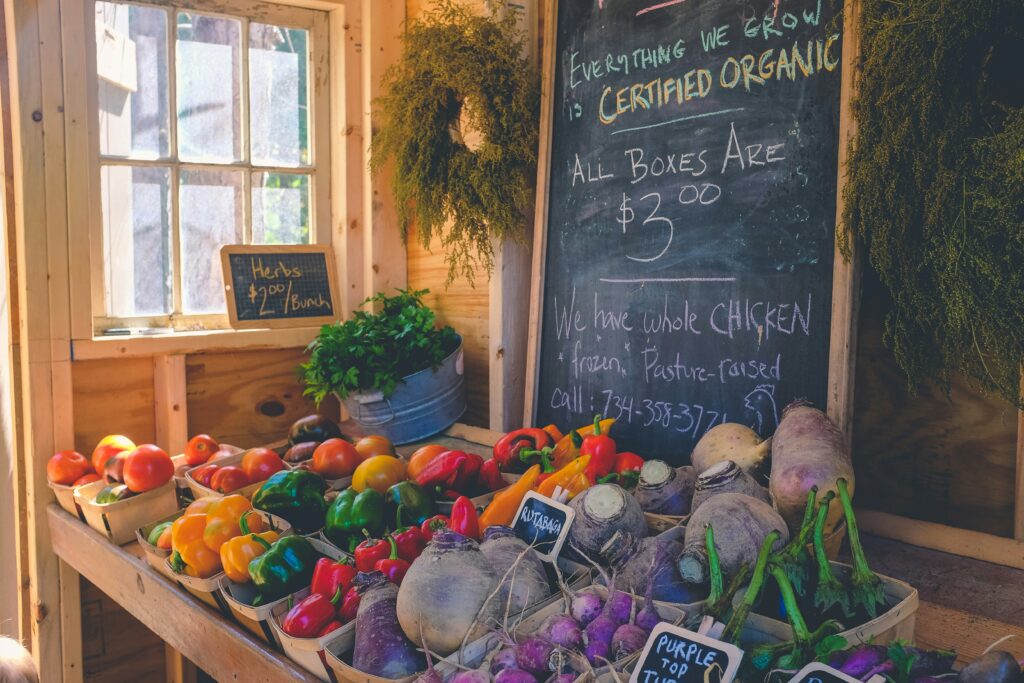
Health Food Stores
Health food stores can be a treasure trove of organic products, as many specialize in sourcing and offering a wide range of organic options. To find health food stores in your area, you can utilize online search engines, directories, or even mobile applications that provide information on local stores.
When searching for health food stores, pay attention to whether they explicitly emphasize their focus on organic products. Some stores may carry a mix of conventional and organic items, while others may proudly prioritize organic and locally-sourced goods. Exploring stores with a dedicated organic selection can provide you with a wide array of options, from fresh produce and pantry staples to personal care products and supplements.
During your visit to health food stores, take the opportunity to inquire about their sourcing practices. Many stores have established relationships with local farmers and producers, ensuring that the organic products they offer are fresh and sustainably grown. Engaging with the store staff can provide you with valuable insights about the origins of the products and allow you to make more informed choices in line with your preferences and values.
Cooperative Grocery Stores
Cooperative grocery stores, also known as co-ops, are community-owned grocery stores that prioritize organic and local products. These stores often operate based on the principles of sustainable agriculture, fair trade, and community development. Joining a cooperative grocery store not only grants you access to a wide range of organic products, but it also enables you to support local producers and participate actively in the decision-making process.
To find cooperative grocery stores near you, a simple online search or reaching out to your local community organizations can provide you with the necessary information. Some cooperative grocery stores may require you to become a member in order to shop, while others may allow non-members to shop as well. Membership usually involves a nominal fee, and in return, members often have the opportunity to vote on store matters and receive discounts on their purchases.
Supporting cooperative grocery stores aligns with the values of community involvement and supporting local agriculture. By shopping at these stores, you contribute to the well-being of both the local economy and the environment, while also gaining access to a wide variety of carefully curated organic products.
Organic Restaurants and Cafes
When you’re seeking a break from cooking at home, exploring organic restaurants and cafes can offer a delicious dining experience while supporting the local organic community. Many eateries nowadays pride themselves on sourcing organic, locally-grown ingredients to create nourishing dishes and beverages for their customers.
To find organic restaurants and cafes in your locality, an online search or browsing through food-focused websites can help you identify suitable options. While perusing their menus, pay attention to whether they highlight sourcing information. Many establishments proudly showcase their commitment to supporting local farmers and using organic ingredients in their preparations.
Once you identify potential organic restaurants and cafes, plan a visit to experience their offerings firsthand. Trying a variety of organic dishes and beverages will not only delight your taste buds but also provide encouragement and support to the establishments and the farmers they source from. This exploration of organic culinary options can be an enjoyable and fulfilling way to both nourish yourself and contribute to the demand for organic products.
Community Events and Festivals
Attending local community events and festivals centered around food can be an excellent way to discover new organic products while enjoying a vibrant atmosphere. These events often feature organic product vendors, giving you a chance to directly connect with local farmers and producers.
To stay updated on local community events and festivals, keep an eye on your community’s social media pages, local newspapers, event listings, or subscribe to newsletters from relevant organizations. Food-focused events often have sections dedicated specifically to local farmers and organic products, providing a diverse range of options to explore.
When attending these events, take the time to engage with the vendors and inquire about their farming practices. Many farmers and producers are enthusiastic about sharing their knowledge and passion for organic agriculture. By fostering these connections, you not only gain access to unique organic products but also support the farmers and encourage their commitment to sustainable farming practices.
Social Media and Online Groups
Social media platforms offer a wealth of information when it comes to finding local organic products. By following local organic food accounts, you can stay updated on new vendors, farmers markets, and other events in your area. Furthermore, joining online groups and communities dedicated to organic food enthusiasts can provide you with a platform to connect with like-minded individuals.
Platforms such as Facebook, Instagram, and Twitter often have dedicated groups or pages focused on local food and organic products. Engaging with these platforms allows you to ask for recommendations, share your experiences, and stay informed about the latest offerings in your area. You may also find individuals who regularly post about their own organic gardening endeavors or homemade organic products, providing inspiration and fostering a sense of community.
Through social media and online groups, you can tap into a vast network of individuals who share your passion for local organic products. This virtual community can become a valuable resource, helping you discover new vendors, learn about upcoming events, and share insights and experiences related to organic farming and sustainable living.
Word of Mouth Recommendations
In an era of technology and convenience, sometimes the most reliable and trustworthy recommendations come from those closest to us. Reach out to your friends, family, neighbors, and colleagues and ask for their recommendations on local organic products. By sharing your interest and preferences, you open the door to personal experiences and suggestions that can greatly enhance your organic shopping journey.
Personal recommendations often come with valuable insights and firsthand experiences. Friends and family members may have tried a specific farm’s products or can vouch for the quality and taste of organic produce from a particular vendor. Benefit from their knowledge and leverage these recommendations to discover hidden gems and build a network of reliable sources for your organic needs.
Remember that word of mouth recommendations can extend beyond immediate circles as well. Engaging in conversations with acquaintances, attending local community meetings, or participating in workshops and classes focused on sustainable living can lead to connections and a wealth of information on local organic products. Sharing your own experiences and recommendations can also contribute to the collective knowledge and support for the organic community.

